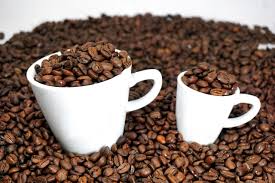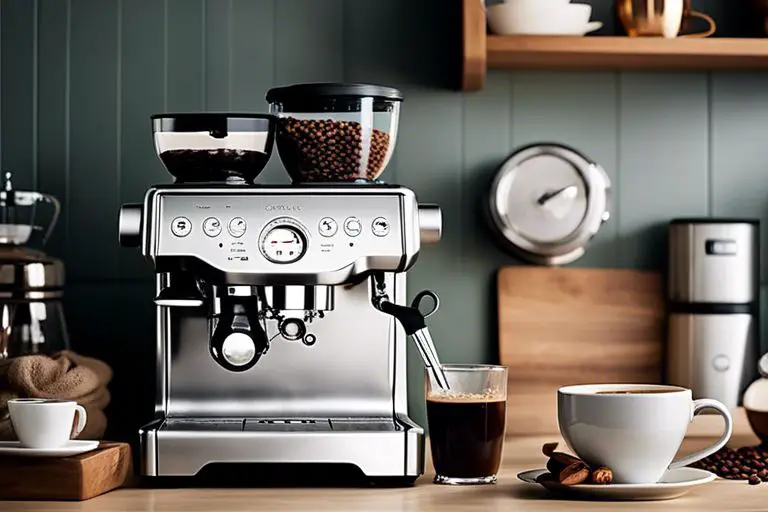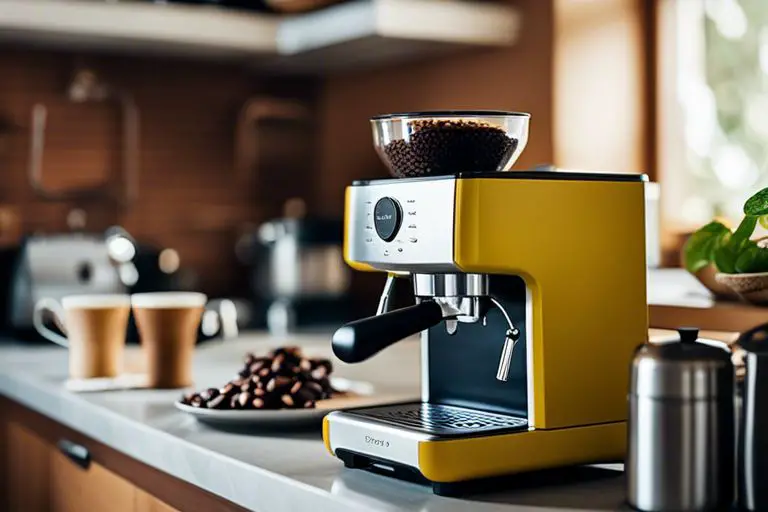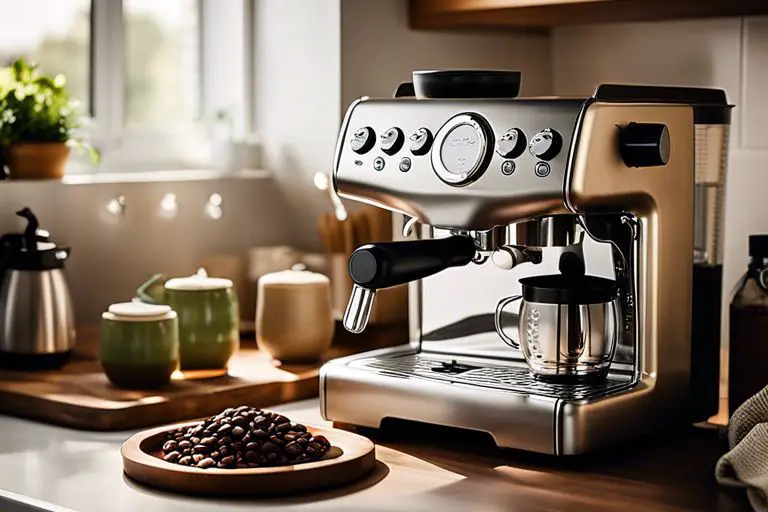Technically it is possible to drink too much coffee but you would have to try really hard to drink enough coffee in one day for it to be an issue or cause you any concern. For most people drinking 2 litres of liquid in an entire day is a challenge and you would have to drink a lot more than 2 litres of coffee for it to be too much.
I used to think that the golden rule of “everything in moderation” applied to everything including coffee until i did my research. I now drink 6-8 cups of coffee a day because it is clear that it is very difficult indeed to drink too much coffee.
If the average coffee contains 250ml of liquid (including the coffee, water and milk) then if you drink 8 of those each day you would be consuming what most people accept is a good amount of liquid intake to keep you hydrated – 2 litres.
It’s actually pretty hard to consume 2 litres of water a day let alone coffee because you have to remember to constantly have a bottle or a cup next to you and take regular mouthfuls.
The reason I find it quite hard to drink 2 litres of water a day or more is that I find it quite a boring, bland and tasteless drink so there is no incentive for me to drink a decent amount of it on a daily basis.
However, it is also pretty hard to find a replacement to water that hasn’t got stuff in it that is not very good for you so you end up being between a rock and a hard place.
You need to drink loads of water because if you don’t then you are going to find it hard to function on a normal level and you will run out of energy quickly, not be able to concentrate properly and generally feel pretty awful.
So how do you find a way to drink something that you don’t really like (water) but you absolutely have to drink it every day because your body demands it?
I found the answer in coffee. I love coffee and always have done. Once you discover all of the different ways to brew it and all of the different types of coffee, you can get a large amount of your daily water intake from a drink that you actually enjoy drinking.
It’s all about the caffeine
Coffee naturally contains caffeine and for a lot of people the “caffeine kick” is the reason you go straight for the coffee first thing in the morning.
It magically wakes you up, gives you an energy boost and sets you up for the day.
It is also perfectly safe to consume and as long as you don’t go completely mad it is extremely unlikely that you will ingest enough caffeine for it to cause you a problem.
Everyone will have a different tolerance level to caffeine and you will know pretty quickly if your body disagrees with the amount of caffeine you are consuming via the coffee you are drinking.
How much caffeine is in a cup of coffee?
It is worth remembering that there are many drinks other than coffee that contain caffeine.
Most notably tea, fizzy drinks and energy drinks can have a similar caffeine content to coffee but it does vary by type of tea and fizzy drink so if you mostly drink these types of drinks then you are going to be taking in a lot of caffeine.
The exact amount of caffeine in each cup of coffee varies depending on a range of factors including the variety of coffee bean, country of origin, how long the beans were roasted for and the way you choose to brew your coffee.
The approximate caffeine level in each cup of coffee for the most popular brewing types are:
Espresso – Contains about 125mg of caffeine for a double shot. This includes all espresso milk-based drinks such as cappuccino and latte as well. There is no caffeine in milk so converting espresso into other drinks with milk does not increase the caffeine content.
Instant coffee – Approximately 60mg of caffeine per cup. There is generally less caffeine in instant coffee than in freshly ground coffee beans because of the way in which the coffee is processed before it gets turned into the granules you find inside the jars on the supermarket shelf.
Instant coffee is the least flavoursome way to enjoy drinking coffee and there are far better ways to enjoy a drink that you will consume multiple times a day.
This article explains in more detail:
Filter coffee – Around 100mg of caffeine per cup depending on your cup size and type of coffee used.
If you are not familiar with all the different ways to brew a cup of coffee then this article will walk you through each method in detail:
How much coffee is too much?
When you are asking this question, you are really asking “how much caffeine is too much?” because in-depth long term scientific studies have shown that regular consumption of coffee over years is beneficial compared to not drinking coffee on a regular basis.
You can find the specific scientific studies in this article:
Everyone is different but as a general guideline, you would need to ingest around 10 grams of caffeine all at the same time for it to cause you a very serious problem.
10 grams is 10,000 milligrams and so if we use the highest amount from the guide above which is 125mg for a double espresso so you would need to drink about 80 cups of coffee at the same time for it to have a seriously negative effect.
To put that into perspective, the average latte contains about 300g of liquid when you include the double espresso and the milk so you would need to drink 24 litres of lattes quickly to reach a critical level of caffeine in your body.
It is simply not possible to consume that amount of coffee in a single day even if you wanted to.
In addition to that, your body starts to expel caffeine reasonably quickly. Only about half of the caffeine in a cup of coffee is still present in your body after 6 hours.
So if you are drinking a lot of coffee, say up to 8-10 cups a day and are wondering if you are taking in too much caffeine then don’t worry, you are not, you are miles away.
What happens when you drink too much coffee?
If you happen to have a sensitivity to caffeine then your body will tell you way before you are able to consume enough for it to become a big problem.
If you were to drink say 10 cups of coffee quickly one after the other and you were sensitive to caffeine then you may start to get a bit jittery or shaky. If that happens to you then simply don’t drink anymore and within a few hours the caffeine level in your body will reduce and the symptoms will subside.
For the vast majority of people drinking 4-5 cups of coffee throughout the day there will be no adverse effects whatsoever and only the benefits such as increased levels of concentration, feeling more alert and that much needed energy boost when you are feeling a bit fatigued.
Is it bad to drink coffee all day long?
No, it isn’t. In fact, drinking coffee throughout the day is beneficial because 90% of it is water anyway and it will help to keep you hydrated.
Just because it’s not pure water doesn’t mean that it doesn’t count towards your daily water intake – it does.
Coffee does not dehydrate you and your body is able to use the water in coffee to keep you hydrated and will expel any excess.
Personally, I drink an equal amount of water to coffee each day totalling 2 litres in total so about 1 lire of coffee and 1 litre of water.
One thing to be conscious of if you drink a lot of coffee is the amount of sugar you put in.
If you are wondering if energy drinks are a decent alternative to coffee then coffee beats energy drinks all day long for an energy-boosting caffeine hit because there tends to be a tremendous amount of sugar in energy drinks.
Find out more about how you can reduce the amount of sugar you take in your coffee in this article:
Is sugar in coffee good or bad?
A detailed comparison of coffee compared to energy drinks can be found in this article:




